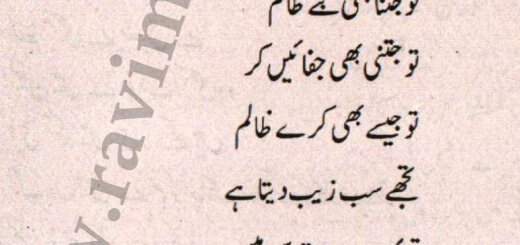How Would Gandhi Answer 9/11 Attack? – By Udayakumar
Words cannot explain the sheer terror and the intimate loss that thousands of people have suffered in the United States on 9/11.
More than the destruction of a few prestigious buildings and key centers of power, or the psychological blow to the national pride that many Americans cherish, it is the human dimension of the attack that angers the people of the United States. The pain they feel is real and the anger righteous. And the intense urge to do something about the situation is also understandable.
However, as in most human situations, quick and easy responses often tend to be wrong and counterproductive. One needs to be patient, creative and courageous to come up with a more mature and productive response that has a long-lasting effect. How would Gandhi answer this dastardly attack if he were in the shoes of President George W. Bush?
First of all, he would not most definitely read the situation as “a monumental war between good and evil.” That would be too simplistic for Gandhi as it ascribes all the goodness to the self and reduces the Other to some kind of an inhuman evil that could and should be crushed. In fact, this is the very mindset that has caused the attack in the first place. The people travelling in the hijacked planes and trapped in the high-rise buildings were all worthless “evil” for the terrorists. So Gandhi would not commit the same mistake the terrorist have committed and play into their hands.
Instead, he would acknowledge that there is evil in the self and goodness in the Other too and try to work with the adversary in that gray zone. Even if he cannot identify any good whatsoever in his adversary, he would try to discern the weaknesses or problems in his own self. Embarking on this soul-search and self-purification, Gandhi would ask himself why he has had to suffer this devastation and if he were responsible in anyway for the current situation.
The country that was leading the world in its fight for human freedom against nazism and fascism has become rather selective these days in deciding who are “humans” and whose freedoms are more important. The country that was instrumental in institutionalizing our collective quest for peace and better life is having second thoughts about the United Nations and many of its worthy initiatives. The United States has left some of the specialized agencies of the UN such as the UNESCO, tries to rescind and resist important treaties and conventions, goes back on crucial commitments they undertook in Rio and other places, and walks out of world conferences for trivial reasons.
In the 1960s and 1970s, the United States was known in many parts of the world for its food aid and overseas development projects. America was equated with CARE and handouts and was thought of as a friend. But today the United States is considered to be a friend of the rich and a self-centered accomplice of those who wage a well-planned and concerted attack on the the poor, farmers, laborers, ethnic and racial minorities and others. “Our way of life” is considered to be much more important than ‘their ways to live.’ Gandhi would ask if some of these actions were in the interests of his world leadership.
Engaging himself in such a sincere and far reaching soul-search, he would also look hard at his adversaries. He would ask why some people really felt like celebrating his ordeal and why many others around the world callously invoked the adage “as you sow, so shall you reap.” Gandhi would ask what could be some of the reasons for these kinds of responses. He would try hard to go beyond these feelings of hatred and anger, and try to appeal to their goodness. As the uncontested singular leader of the world, he would not hug a few and shun the rest without any sense of justice. As someone who stands up for human freedom and dignity, he would not succumb to the pressures of vested interests and their dollars and lobbies.
With these balanced views of the self and the Other, Gandhi would NOT see the current situation as something between the terrorist and the terrorized. Rather he would see it as something between terror that is being used as a socioeconomic-political weapon and humans who employ it in many different ways at various levels. He would know that killing a few hundred terrorists and thousands of innocent people would not solve the problem at hand. He would seek a more creative, productive, and long-lasting cure for the global malaise. So he would want to kill terrorism rather than the terrorists.
Nobody, not even the mightiest army on the earth, can kill terrorism by killing the terrorists. Terrorism that hurts, harms and kills human beings is so pervasive in human affairs. Almost all nation-states have terrorist groups and almost all states tend to practice state terrorism. If we think of terrorism as a brutal mischief blindly committed by a belligerent group of bearded bullies, we miss the point completely. Terrorism, like any other social disease, has deep roots and causes. We should see not only the physical aspect of it but also consider the structural sides of terrorism. How do we describe the sufferings of some 1.5 billion poor people who do not have the bare necessities of life and are further oppressed in the name of liberalization, privatization and globalization?
All this is not to say that the individuals and the groups behind the New York and Washington D.C. cruelty should be left alone. Far from it!
Going back to Gandhi’s broader perspective, he would not consider the issue at hand as an attack on just his country and try to come up with a temporary remedy or an ineffective and unworkable solution. He would consider this as an attack on the whole of humanity, its civilization, freedom and development. So his “coalition building” exercise would incorporate everyone, not just a few friends, for a collective and comprehensive worldwide effort against terrorism. His coalition would be democratic and carry out the common
agenda collectively set.
Gandhi would be steadfast in his stand that violence cannot and should not be countered by super-violence for it would not only resolve anything but only justify the initial violence. His answer for terrorism would not be counter-terrorism or heightened terrorism as governments tend to believe.
Gandhi would focus on soul-searching, self-purification, dialogue and a carefully prepared redemptive program. Instead of spending more money on the military that could not help New Yorkers and Washingtonites, Gandhi would put those resources into education for peace and justice. Instead of enacting the jungle law of attack and counter-attack, Gandhi would favor establishing a civilized and permanent mechanism at the global level to bring the culprits, each and everyone of them, to justice. He would argue for establishing an international criminal court along with an effective enforcement mechanism, which has been an anathema to many countries including the United States. Having done this homework, Gandhi would act courageously and decisively. He would not give any considerations whatsoever to media sensationalism, performace ratings, and future elections.



![Kuch Ishq Kiya, Kuch Kaam Kiya [Ishq Aur Kaam] - Faiz Ahmed Faiz](https://www.ravimagazine.com/wp-content/uploads/2015/03/faiz-461x245.jpg)








